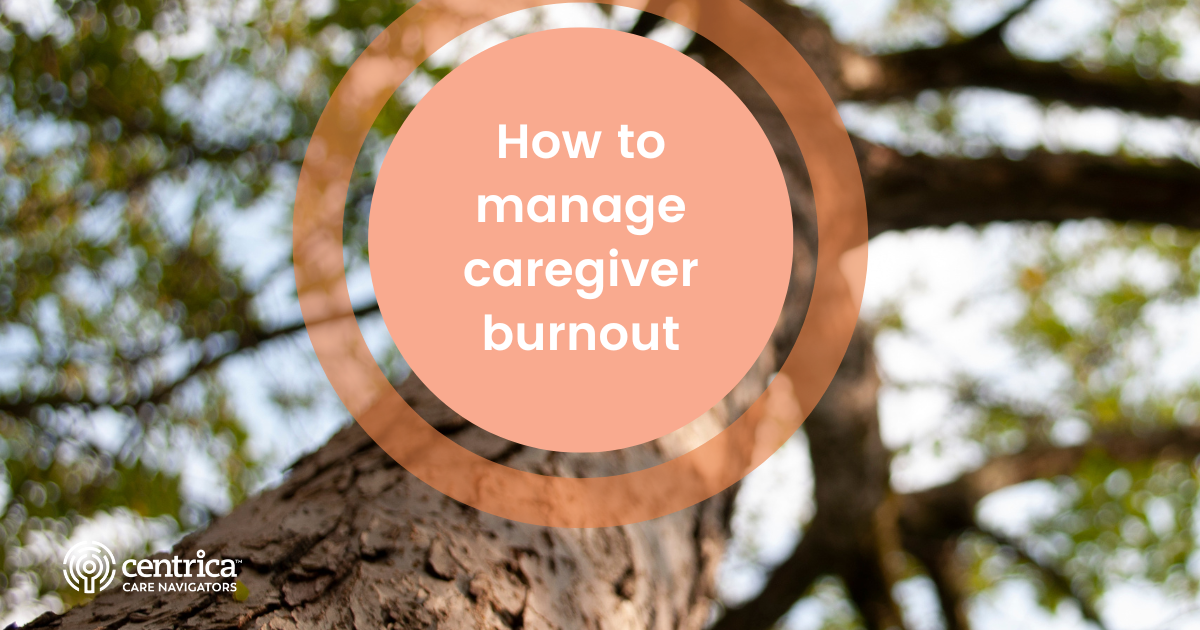I’ve never had to be a caregiver – not in the sense we use the term here at Centrica Care Navigators: someone like a friend or family member who is regularly providing service to people like our patients and guests. What I do know is that becoming a caregiver can be stressful, to put it mildly.
There are so many things to keep track of, from doctor visits to taking care of simple household chores that the person you’re caring for can no longer do for themselves. That’s not to mention everything else you have in your life outside of your caregiving responsibilities, like your job, your children, and your own health.
There’s no question that it’s a lot of effort, even for someone who has the support of other family members, friends, and Centrica Care Navigators, where we have professional staff that can assist in caregiving. We also have reference tools and contacts available online, including highlights on our care options and a collection of organizations like emergency services.
If all these responsibilities get to be too much, they can lead to burnout: a feeling of exhaustion, tension, and even pain. It’s not helpful for you, your patient, or anyone around you.
How can I prevent caregiver burnout?
Some of the classic methods for relieving stress, like exercise, rest, and healthy meals, can be helpful for caregivers too. But that’s just a start. One of the best ways to help relieve the effort of caring for a loved one is to reach out for support from other people.
- Find a friend
A neighbor or co-worker can simply be there to listen. Grab a cup of coffee and just talk about what you’re feeling. It can be a time for you to think about your next steps, or a chance to take a break from worrying about your patient.
- Realize that you don’t have to do it alone
You might be the primary caregiver for a patient, but that doesn’t mean you’re the only caregiver. If you’re taking care of your older parent, you may have brothers and sisters who can take over for a few hours. Maybe you’re already working with our team here at Centrica Care Navigators, leaning on their expertise to make sure your loved one gets the attention they need and deserve.
- Recognize that this won’t be forever
It may seem like a long struggle when it’s happening, but a patient’s situation can change at any time. Other family members or friends may be able to step in to help. The health of patients can improve to the point where they no longer need care. Maybe an illness progresses enough that it’s better for them to be in a care site, where they can receive professional round-the-clock care.
Plan some time for yourself when the conditions for the person you’re caring for change: time for you to grieve, and time for you to reconnect with others in your life who didn’t get the attention you wanted to give them while you were a caregiver.
- Learn what you can
It may help to find out everything you can about the illness your loved one is facing. Being able to see for yourself that your patient is getting the right kind of care can be a comfort.
- Accept that you get upset
Caring for someone else can be difficult at times. Every minute of every day won’t be a wonderful experience; there will be times you are frustrated, sad, or angry. That’s normal! What you don’t want to do is act on those upset feelings in a way that hurts yourself or anyone else.
- Join a support group
You might already be talking with a friend (see idea #1) but you can also find companionship with people going through the same kind of experience as you. Groups often meet on a regular schedule; it’s a good way to keep something consistent in your life during what can be a complicated time. Meeting with other caregivers is also an opportunity to reduce your feelings of frustration and isolation.
Don’t forget that part of being a caregiver is taking care of yourself, too. Eating healthy meals and taking breaks is a start. Finding friends and recognizing that there are others out there like you can make the stress and strain, and chance of caregiver burnout, a little less.
You can learn more by exploring our website or calling Centrica Care Navigators at 269.345.0273.




